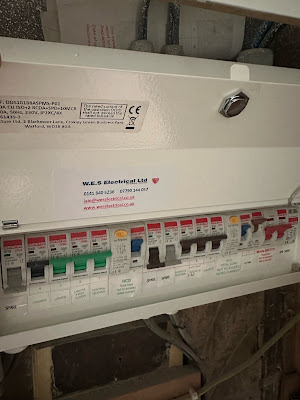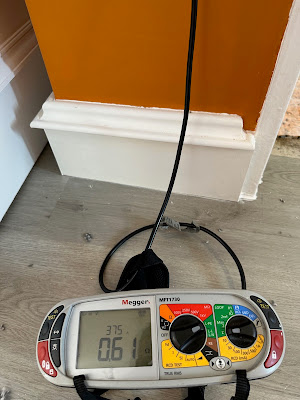Electrical Testing for Landlords in Glasgow: Ensuring Safety and Compliance
As a landlord in Glasgow, ensuring the safety and compliance of your rental properties is not only a legal obligation but also a crucial aspect of providing a safe living environment for your tenants. Electrical testing, particularly the Electrical Installation Condition Report (EICR), plays a vital role in this process. This article will explore the importance of electrical testing for landlords, the legal requirements, and the benefits of maintaining compliant and safe electrical installations.
Importance of Electrical Testing
Electrical testing is essential for several reasons:
- Safety: Faulty electrical installations can lead to fires, electric shocks, and other hazards. Regular testing ensures that the electrical systems in your properties are safe and functioning correctly.
- Legal Compliance: Landlords must comply with various regulations, including the Electrical Safety Standards in the Private Rented Sector (England) Regulations 2020, which also apply to Scotland. Failing to meet these standards can result in fines and legal action.
- Preventive Maintenance: Identifying and rectifying electrical issues early can prevent more significant problems and costly repairs in the future.
- Tenant Confidence: Providing a safe living environment builds trust with your tenants and can lead to longer tenancies and reduced turnover.
Legal Requirements for Landlords in Glasgow
In Scotland, landlords are required to ensure that their rental properties meet certain electrical safety standards. Key requirements include:
- EICR: Landlords must have a valid Electrical Installation Condition Report for their properties. This report should be conducted by a qualified electrician and must be renewed every five years or at the beginning of a new tenancy.
- PAT Testing: Portable Appliance Testing (PAT) is required for all electrical appliances provided by the landlord. This testing ensures that appliances are safe to use.
- Smoke and Heat Alarms: Landlords must ensure that smoke alarms are installed in living rooms and hallways on each floor, and heat alarms are installed in kitchens. These alarms must be interconnected and regularly tested.
- FHP3 Certificates: For properties requiring further safety measures, such as hardwired smoke alarms, landlords must obtain FHP3 certificates to demonstrate compliance.
Benefits of Regular Electrical Testing Glasgow
- Enhanced Safety: Regular electrical testing minimizes the risk of electrical faults and accidents, ensuring the safety of tenants.
- Legal Protection: Compliance with electrical safety regulations protects landlords from legal penalties and potential lawsuits.
- Property Value Maintenance: Well-maintained electrical systems can enhance the value of your property and make it more attractive to potential tenants.
- Reduced Insurance Premiums: Some insurance companies offer lower premiums for properties that have up-to-date electrical safety certifications.
Choosing a Reliable Electrical Testing Service in Glasgow
When selecting an electrical testing service, consider the following factors:
- Qualifications: Ensure the electricians are certified and have the necessary qualifications to conduct EICR and PAT testing.
- Experience: Look for a company with a proven track record in providing electrical testing services for rental properties.
- Reputation: Check reviews and testimonials to gauge the reliability and quality of the service.
- Comprehensive Services: Choose a provider that offers a full range of services, including EICR, PAT testing, and smoke alarm installation.
- Transparent Pricing: Request detailed quotes and ensure there are no hidden fees.
Conclusion
Electrical testing is a critical responsibility for landlords in Glasgow, ensuring the safety and compliance of rental properties. By conducting regular EICRs and PAT tests, and maintaining up-to-date smoke and heat alarms, landlords can protect their tenants, comply with legal requirements, and preserve the value of their properties. For landlords seeking reliable electrical testing services, choosing a qualified and reputable provider is essential to achieving these goals.







